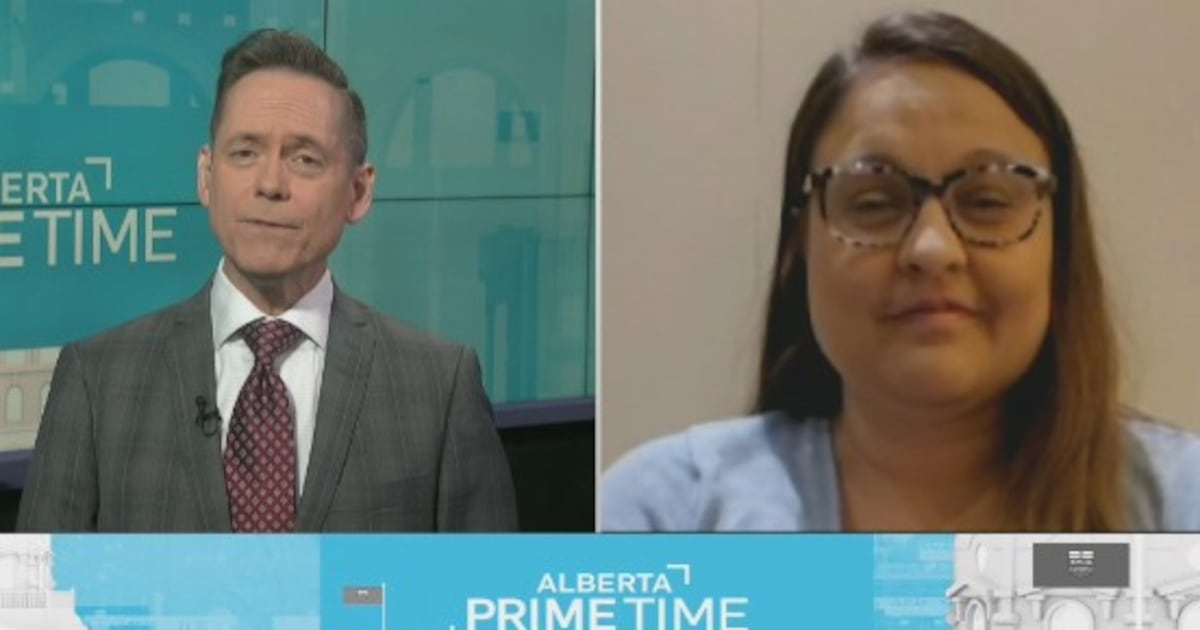Education
Alberta’s Private Health Care Plans Spark Concerns Among Experts

Plans by the Alberta government to introduce private health care options have raised significant concerns among experts regarding the implications for the province’s overall health system. Lorian Hardcastle, a professor at the University of Calgary‘s Faculty of Law and Cumming School of Medicine, highlighted these issues in a recent interview on Alberta Primetime with host Michael Higgins.
Hardcastle emphasized that while these changes may benefit individuals who can afford private services, they do not address the broader frustrations many Albertans face with the existing health-care system. “This may be a fix for those who can buy services,” she stated, adding, “but for the overall system, it really isn’t going to be a fix.” She pointed out that evidence from other jurisdictions indicates that private patients often receive faster care, potentially leading to longer wait times for public patients with more complex medical needs.
The preparedness of the Alberta government to implement these changes has also come into question. Hardcastle expressed skepticism, noting that much of the proposed legislation lacks concrete safeguards to protect the public health system. “It seems we’re just going to forge ahead,” she remarked, urging the government to consider successful models from other regions that maintain a balance between public and private care.
Navigating this new landscape could be challenging for patients. Hardcastle explained that individuals might find themselves in complex situations where they have to decide whether to pay for expedited service or wait for public care. “You may not know, should I pay? Should I not pay?” she noted. This conflict of interest could complicate the doctor-patient relationship, with physicians facing additional administrative burdens as they juggle billing for both public and private patients.
The potential for negative competition between public and private health care systems is another concern. Hardcastle indicated that with a finite number of health professionals, there could be a shift towards private practices that cater to patients with less complex needs, further straining the public system. “You’ll have competition between those who can pay and those who can’t,” she warned.
As the Alberta government moves forward, the implications for compliance with the Canada Health Act remain uncertain. While some provisions in the legislation aim to adhere to this national standard, such as prohibiting doctors from billing both public and private systems simultaneously, Hardcastle cautioned that accessibility could still be compromised. “We could end up in a situation where people are facing financial barriers to care,” she stated, anticipating that the federal government may intervene if these issues arise.
The shift towards a private health care model raises questions about the future landscape of health services in Alberta. Hardcastle noted that Premier Kenney‘s government has already opened the door to private health service delivery. With discussions about out-of-pocket payments gaining traction, there is a possibility that a private insurance market may develop, similar to systems observed in the United States.
“There’s a potential for the gap between the healthy and the sick to increase,” Hardcastle stated. She expressed concern that if a private insurance market emerges, it could lead to the same administrative complexities and inequities seen in the U.S. health system, where costs are significantly higher.
As Alberta’s health care policy evolves, the prospect of residents needing private insurance—a norm in many countries—could become a reality. Hardcastle pointed out that the current market for private insurance in Alberta is limited mainly to services outside the public system, such as dental care and pharmaceuticals. “We could potentially see an insurance market emerge for some medically necessary services,” she concluded, noting that the response from existing health insurers could shape the future of Alberta’s health care landscape.
The developments in Alberta’s health care system not only impact local residents but also hold broader implications for the future of health care in Canada. As the situation unfolds, the focus will remain on how these changes affect accessibility, quality of care, and the overall sustainability of the public health system.
-

 Politics3 weeks ago
Politics3 weeks agoSecwepemc First Nation Seeks Aboriginal Title Over Kamloops Area
-

 World4 months ago
World4 months agoScientists Unearth Ancient Antarctic Ice to Unlock Climate Secrets
-

 Entertainment5 months ago
Entertainment5 months agoTrump and McCormick to Announce $70 Billion Energy Investments
-

 Lifestyle4 months ago
Lifestyle4 months agoTransLink Launches Food Truck Program to Boost Revenue in Vancouver
-

 Science5 months ago
Science5 months agoFour Astronauts Return to Earth After International Space Station Mission
-

 Technology3 months ago
Technology3 months agoApple Notes Enhances Functionality with Markdown Support in macOS 26
-

 Top Stories2 months ago
Top Stories2 months agoUrgent Update: Fatal Crash on Highway 99 Claims Life of Pitt Meadows Man
-

 Lifestyle3 months ago
Lifestyle3 months agoManitoba’s Burger Champion Shines Again Amid Dining Innovations
-

 Sports5 months ago
Sports5 months agoSearch Underway for Missing Hunter Amid Hokkaido Bear Emergency
-

 Politics4 months ago
Politics4 months agoUkrainian Tennis Star Elina Svitolina Faces Death Threats Online
-

 Politics4 months ago
Politics4 months agoCarney Engages First Nations Leaders at Development Law Summit
-

 Technology5 months ago
Technology5 months agoFrosthaven Launches Early Access on July 31, 2025





















